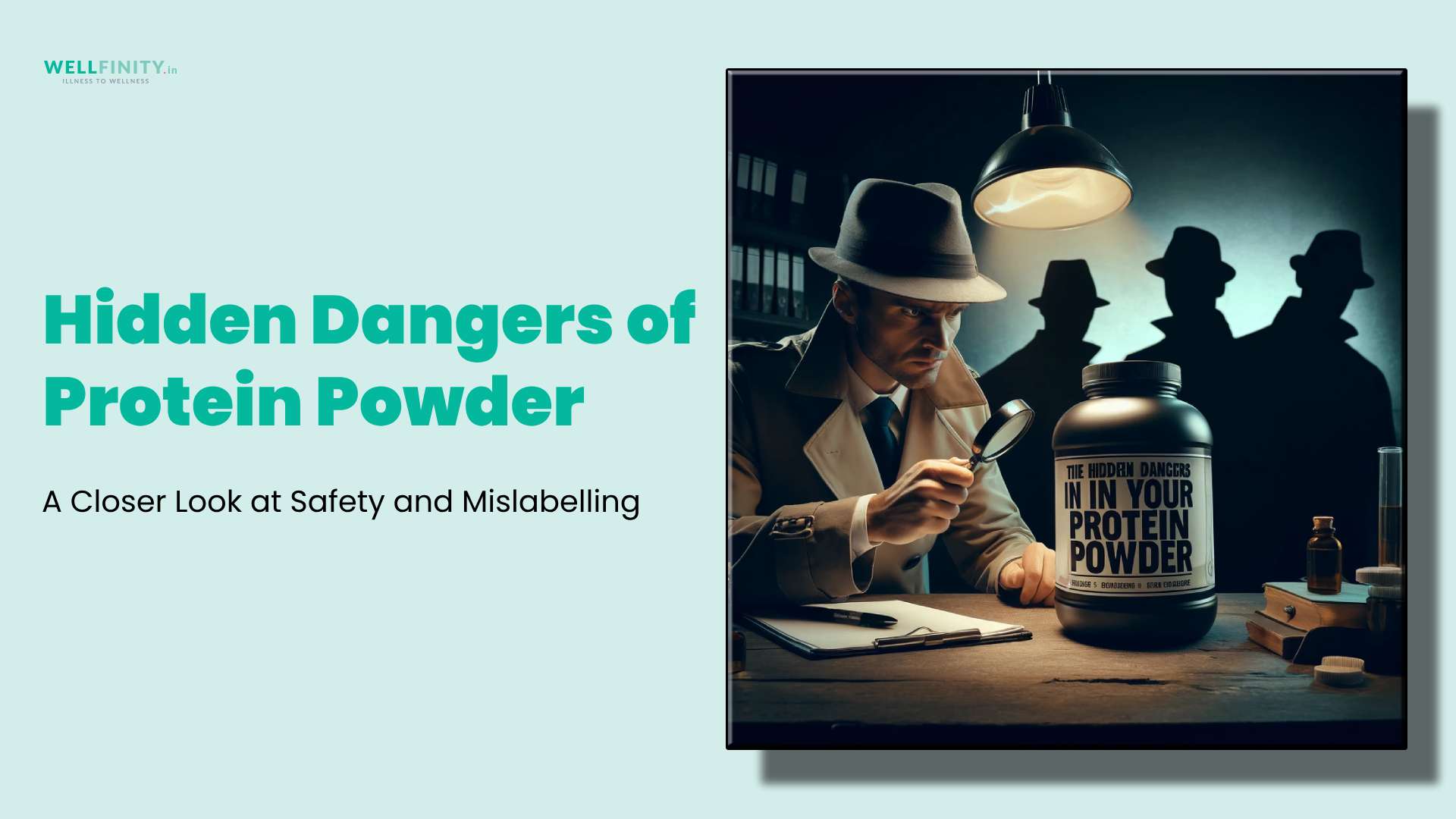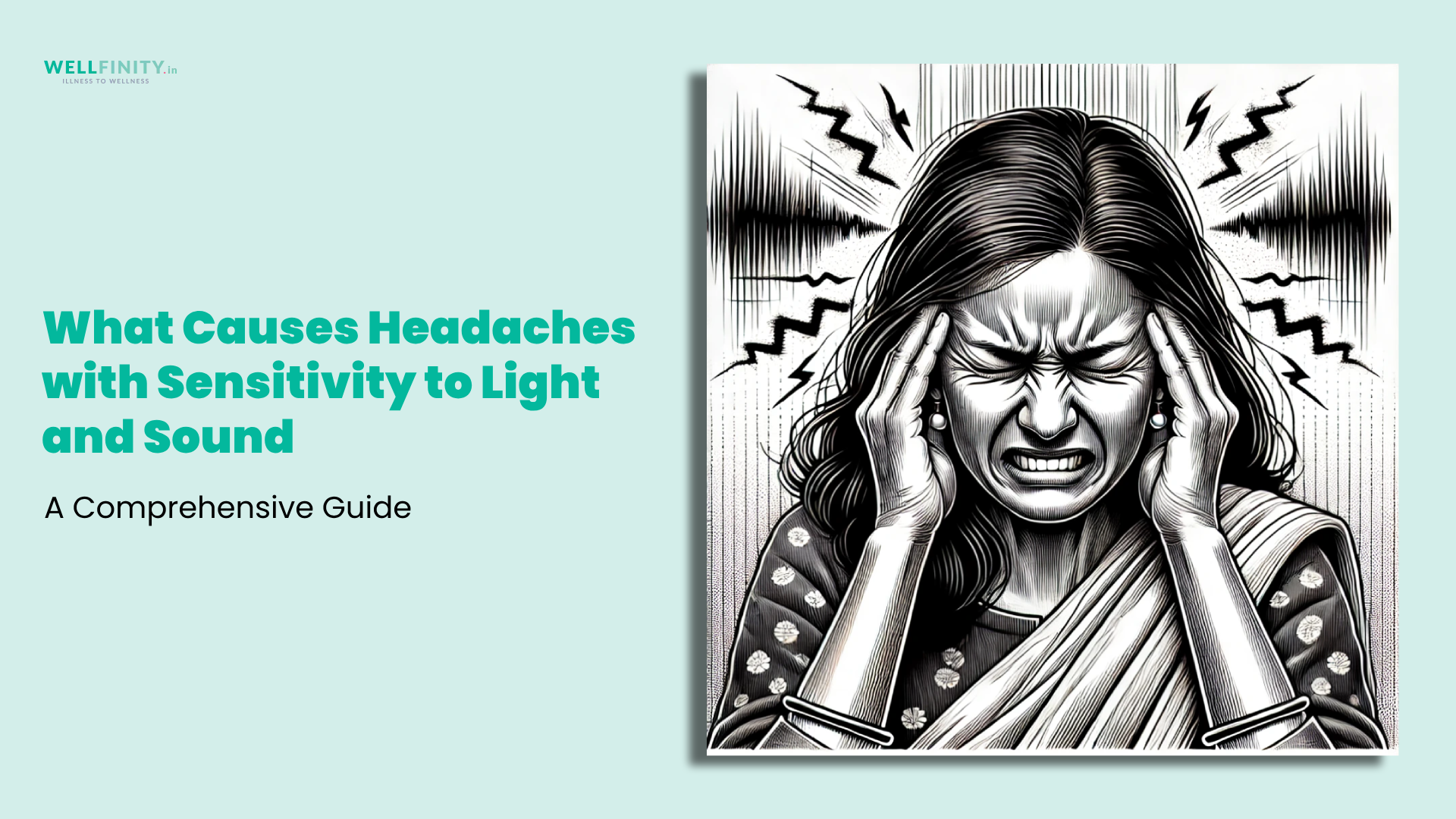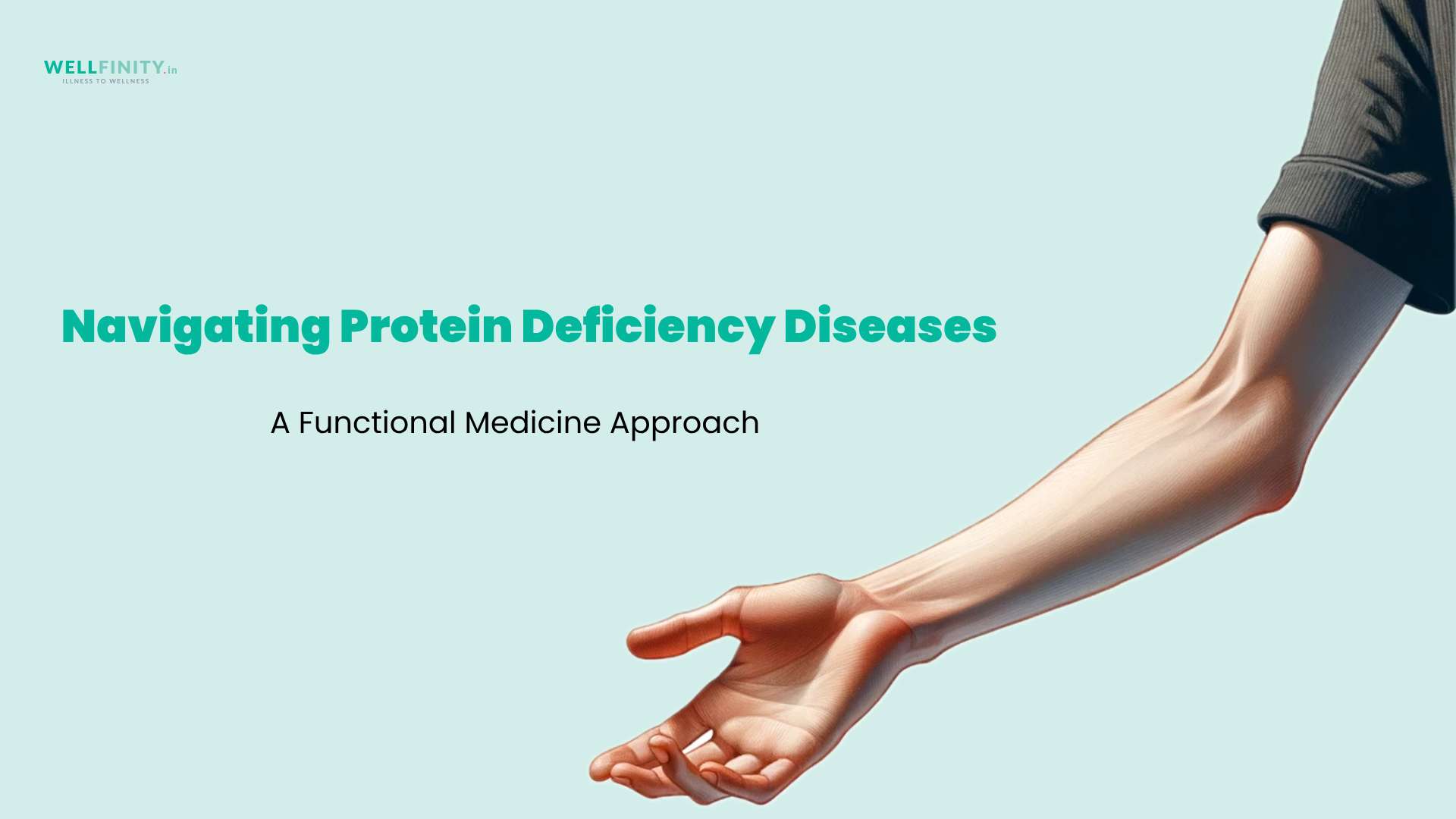With fitness becoming a fad and people understanding the importance of protein in their diet, the consumption of protein powders has seen a meteoric rise in India. In 2023, the protein supplement market in India was estimably valued at Rs. ~33,028 crores. This is expected to increase at a compounded annual growth rate (CAGR) of 15-20% and reach Rs. ~128,460 crores by 2032.
This surge in popularity mirrors a global trend where protein supplements are seen as a quick fix to meet dietary needs amidst hectic lifestyles. Fitness enthusiasts are driving demand as protein aids in muscle growth, weight management, and overall health enhancement. However, there is a flipside to this boom as well.
A recent study called the ‘Citizen’s Protein Project’, published in the journal Medicine has cast shadows on the reliability of protein supplements. This study stands out as it was self-funded and had a transparent approach. Its objective was to provide unbiased data on the quality and safety of protein powders available in the Indian market and it disturbingly exposes significant issues such as mislabelling and contamination.
In this blog, we will delve into the important details of the study and its key findings, shed light on the health risks associated with contaminated protein powders, and guide you on how to choose safe supplements.
Overview of the Study’s Methodology and Findings
Methodology: Over a period of two months, the study reviewed many supplement stores – online and in person – to identify the most popular protein supplement brands. Products were bought from official stores and authorized dealers, and their authenticity was checked using QR codes. An impartial person documented detailed information about these products in a master chart. The products were then sent anonymously to an independent lab for testing. Since no humans were involved in the study, it was decided that ethical approval was not needed.
The products were tested for total protein, fungal toxins, pesticides, heavy metals, steroids, and other organic and inorganic contents using various advanced techniques. Quality control during these tests adhered to industry standards and government regulations and the study followed all necessary food and drug safety regulations.
Summary of key findings
The study analysed 36 protein supplements and tested them for protein content, toxins, pesticides, and heavy metals. It identified issues with mislabelling, contamination, and ingredient quality which were mainly as follows:
- Mislabelling of Protein Content: About 69.4% of the protein supplements tested were mislabelled with respect to protein content. They showed less protein than advertised. Some products had protein deficits ranging from under 10% to more than 50%.
- Presence of Hepatotoxic Substances: Several of the tested protein supplements contained hepatotoxic herbal extracts like green tea extract, curcumin, and garcinia cambogia, which are known for potential liver toxicity.
- Traces of Heavy Metals: Traces of arsenic and cadmium were found in some of the tested samples, while most of the samples contained traces of lead and copper. Although copper is a routine component of dietary supplements, not more than 900 micrograms per day is recommended. The tested samples contained much more.
- Detection of Harmful Herbal Extracts and Other Toxic Compounds: The study found significant amounts of hazardous ingredients including aflatoxins and pesticides predominantly in plant-based protein supplements. Moreover, various industrial solvents and phytosteroids, which can be harmful, were detected across different supplements.
Health Risks of Contaminated Protein Powders

Some herbs and compounds found in these protein powders – such as green tea extract, turmeric, and Garcinia cambogia are known to cause hepatotoxicity (liver damage caused by chemical substances). The liver injury may be induced when these chemicals damage liver cells directly or through immune responses. The damage can range from mild enzyme elevations to severe liver failure.
Apart from the above, fungal toxins (alfatoxins) can cause cancer (especially liver cancer) or can have mutagenic effects; that is, it can alter the DNA. Pesticide residues such as Fenocarn and Thiamethoxam can cause neurological symptoms, reproductive disorders, and potential disruptions in hormonal balance. Chronic exposure can lead to more serious issues like cancer.
The presence of lead in protein supplements increases the risk of neurological damage and blood disorders, while arsenic has been linked to increased risk of various cancers, skin lesions and cardiovascular diseases. Cadium has been associated with kidney damage and bone demineralization.
Industrial solvents and volatile organic compounds such as Toluene and Benzene present in protein supplements can cause liver and kidney damage. They may also affect the nervous system and lead to respiratory issues. Chronic exposure can increase the risk of cancer.
These contaminants – especially when combined in a product consumed regularly – can pose significant health risks. This necessitates stringent quality controls and consumer awareness of the ingredients in their supplements.
Regulatory Insights and Consumer Protection
The Citizen’s Protein Project highlights a glaring gap in regulatory oversight within the Indian protein supplement market. Current standards and enforcement do not ensure product safety. They mislead consumers and expose them to health risks. Therefore, in order to safeguard consumer health, the study has recommended mandatory safety studies and transparent reporting of all ingredients before these supplements can be marketed.
In response to these alarming findings, bodies like the Food Safety and Standards Authority of India (FSSAI) have begun to tighten regulations and oversight, though much remains to be done to ensure widespread compliance.
Expert Advice on Choosing Safe Supplements
Experts recommend thorough scrutiny of protein powder labels, understanding the source and necessity of each ingredient, and choosing products from reputable manufacturers with a clear track record of safety and transparency. Consumers are advised to look for products with fewer and simpler ingredients, clear labelling of all contents, and certifications from credible organizations.
- How to read product labels of protein powders
More importantly, consumers should know how to read the product labels of protein powders correctly for making an informed choice. For this, the key factors to be borne in mind are as follows:
Firstly, you should be mindful of the amount of protein per serving. For a quality product, it is usually 20-30 grams. It is best to choose a complete protein that contains all the essential amino acids. Common sources of such proteins include animal sources such as whey, casein and egg albumin; and non-animal sources such as soy, brown rice and pea protein.
Moreover, the amino acid profile is crucial to maximising fitness and muscle building. High-quality protein powders are usually transparent about their amino acid profile and their effectiveness in supporting muscle growth and recovery.
Secondly, be wary of mislabelling with respect to nutritional information. A product may claim more protein content per serving than it actually has. Choose products that have been tested and certified by credible third-parties, such as National Sanitation Foundation (NSF International) and US Pharmacopeia.
Thirdly, avoid contaminated products and banned substances in your protein. Look for certifications that specifically test for these hazards. Two such programs are ‘The Informed Choice’ and ‘NSF Certified for Sport.’
Fourthly, high-quality protein powders typically have a short list of ingredients. They emphasize on the protein source and have very few additives. Be wary of added sugars, artificial sweeteners or excessive fillers that are used to increase volume. They not only dilute the protein content and nutritional value, but also impact your gut negatively.
- The Right Whey for You
Whey protein is the most popular dietary supplement. It is derived from milk and comes in several forms, each with unique properties and benefits. Here are the primary types of whey protein:
Whey Protein Concentrate (WPC): This is the least processed form of Whey protein and usually contains 30-80% protein by weight. The remaining is lactose (milk sugar), fats and minerals. Due to the presence of some fat and carbs, it has a more balanced nutrient profile and is preferred by those who are looking for a protein with added macronutrients to support muscle growth.
Whey Protein Isolate (WPI): When WPC is processed further to remove fat and lactose, what we get is WPI. In this form, Whey typically contains 90% protein. Moreover, after the process of isolation, the protein becomes easier to digest. It also helps in faster muscle repair and growth after exercise. This type is a good option for those who have lactose intolerance, or are looking to build lean muscles by controlling their fat and carb intake.
Whey Protein Hydrolysate (WPH): This is the most expensive and highly processed type of whey protein. It contains around 99% protein. The long protein chains are broken down into simpler chains through a process called hydrolysis, which improves digestion and reduces the potential for allergies. WPH is often used in hypoallergenic baby milk formulas and medical foods. It is best for those who need immediate post-workout recovery, or those who have digestive issues.
However, it must be borne in mind that Whey proteins can be a bit tricky. Whey is a by-product we get after curdling and straining milk. When this Whey is heated, the glutamine turns into monosodium glutamine (MSG). People with MSG sensitivities are likely to have reactions.
Likewise for people who are intolerant to whey, the similar 3 types of vegan sources of protein is applicable. Even in vegan protein it is advisable to go for protein hydrolysed or isolate.
Having said the above, it is still best to fulfil your protein requirement – which is ideally 0.8 to 1.2 grams per kg of your body weight – from clean food.
Wellfinity’s Commitment to Quality
Wellfinity.in exercises due diligence and recommends only the highest quality protein supplements that are meticulously vetted to ensure they are free from harmful additives and contaminants. By choosing supplements with simpler, more natural formulations, our members can enjoy the health benefits of protein powders without the risks associated with harmful additives.
This Citizen’s Protein Project has raised serious questions on malpractices in the protein supplement industry, where products are being marketed without due diligence to consumer safety. Consumers are advised to make informed decisions when choosing dietary supplements.
Wellfinity remains committed to promoting safe, high-quality supplements that consumers can trust. In fact, we don’t just recommend products, we also educate our customers about them. To learn more about how our functional medicine approach can be tailored to meet your needs, please visit our functional medicine page and schedule a call with our doctors.



